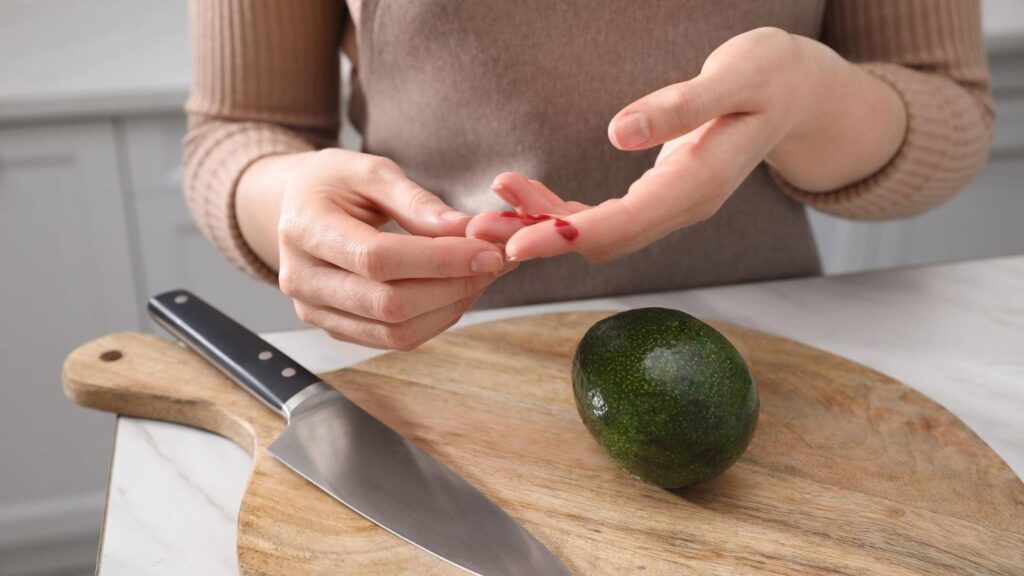The kitchen is the heart of the home, where delicious meals are created and family memories are made. However, it is also one of the most accident-prone areas, filled with sharp knives, hot surfaces, and potential hazards. Whether you’re a professional chef or a home cook, being prepared for emergencies is crucial. One of the best ways to ensure safety in the kitchen is by obtaining First aid training Kingston, which equips individuals with the necessary skills to handle accidents and medical emergencies effectively.
Common Kitchen Hazards and First Aid Responses
From minor burns to life-threatening injuries, the kitchen presents many risks. Here are some common hazards and how First aid training Kingston can help you manage them:
1. Cuts and Lacerations
Knives, graters, and other sharp utensils can easily cause cuts. While small cuts may only require basic cleaning and a bandage, deeper wounds can lead to significant blood loss. First aid training teaches proper wound care, including how to clean a cut, stop bleeding, and when to seek medical attention.
First Aid Response:
- Wash hands and clean the wound with antiseptic.
- Apply pressure with a clean cloth to stop bleeding.
- Use a sterile bandage to cover the wound.
- Seek medical attention if the cut is deep or does not stop bleeding.
2. Burns and Scalds
Hot pots, steam, and boiling liquids can cause serious burns. Knowing how to treat burns properly can prevent infection and long-term skin damage.
First Aid Response:
- Cool the burn with running water for at least 10 minutes.
- Avoid using ice, as it can cause further skin damage.
- Cover the burn with a sterile, non-adhesive dressing.
- Seek medical help for severe burns or those covering a large area.
3. Choking Hazards
Choking is a common kitchen emergency, especially when eating quickly or tasting food while cooking. Knowing how to perform abdominal thrusts (Heimlich maneuver) can save lives.
First Aid Response:
- Encourage the person to cough forcefully.
- If they cannot breathe or speak, stand behind them and perform abdominal thrusts.
- Call emergency services if the object does not dislodge after multiple attempts.
4. Slips and Falls
Spills and wet floors can lead to falls, resulting in sprains, fractures, or head injuries. First aid training provides the knowledge to assess injuries and assist in stabilizing a person until medical help arrives.
First Aid Response:
- Check for signs of serious injury (loss of consciousness, difficulty moving, severe pain).
- If the person is conscious, help them sit up slowly to prevent dizziness.
- Apply ice to reduce swelling for minor injuries.
- If a head injury or broken bone is suspected, seek immediate medical attention.
The Importance of First Aid Training for Culinary Enthusiasts
Whether you’re a home cook, food blogger, or professional chef, First aid training Kingston provides invaluable skills that can save lives. Here’s why it’s a must-have for anyone who spends time in the kitchen:
1. Increased Confidence and Preparedness
Emergencies can be stressful, but first aid training provides the knowledge and confidence to act quickly and effectively. Instead of panicking, you’ll know exactly what steps to take.
2. A Safer Cooking Environment
By understanding basic first aid, you can implement safety measures to prevent accidents before they happen. Simple practices like keeping knife blades covered, securing rugs, and being mindful of hot surfaces can drastically reduce risks.
3. Professional and Personal Growth
For those working in the culinary industry, first aid certification is a valuable skill that can make you stand out. Many food service establishments require at least one person on staff to be trained in first aid. If you run a cooking business or host cooking classes, offering a safe environment is essential.
Where to Get First Aid Training in Kingston
If you’re looking to enhance your kitchen safety skills, enrolling in First aid training Kingston is a great step. Several organizations provide certified courses that cover CPR, wound care, burn treatment, and emergency response strategies tailored to various environments, including the kitchen.
What to Expect in a First Aid Training Course
- Hands-on practice for treating burns, cuts, and choking incidents.
- Training on CPR and how to use an Automated External Defibrillator (AED).
- Guidance on assembling a first aid kit tailored to a kitchen setting.
- Certification upon completion, which may be valid for workplace requirements.
Be Safe in the Kitchen
Cooking should be an enjoyable and safe experience. Whether you’re preparing meals for your family or running a professional kitchen, accidents can happen at any time. By taking First aid training Kingston, you equip yourself with life-saving skills that can make all the difference in an emergency.
Don’t wait until an accident occurs—be proactive and ensure that you’re prepared to handle kitchen emergencies with confidence. A well-trained cook is not only skilled in creating delicious meals but also in maintaining a safe cooking environment for everyon

